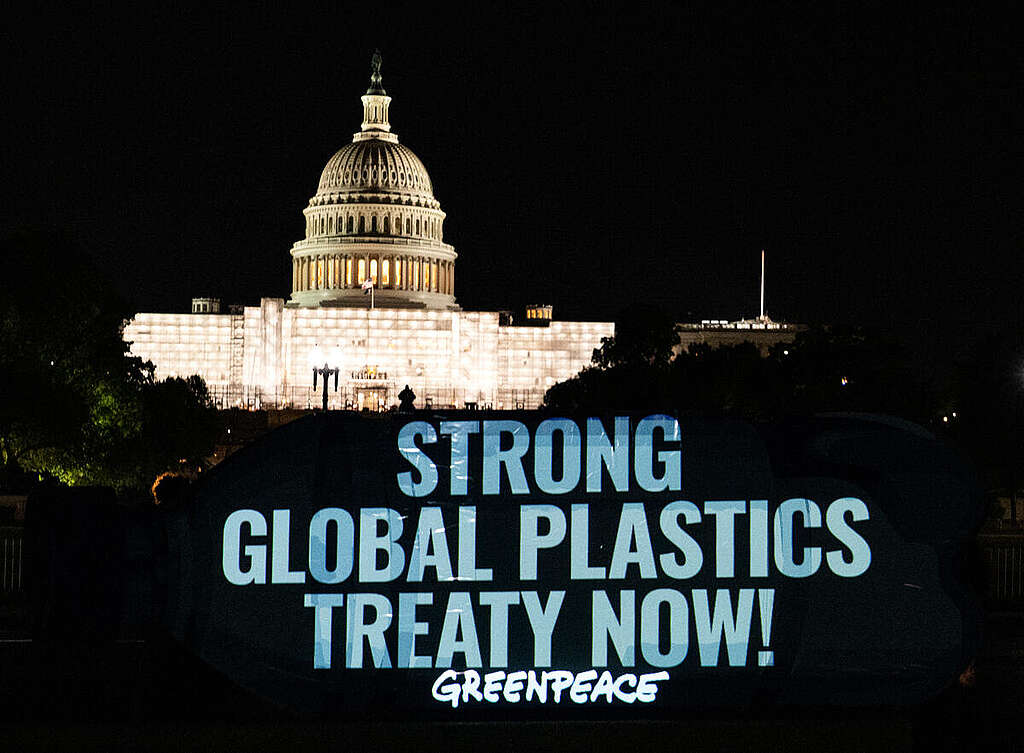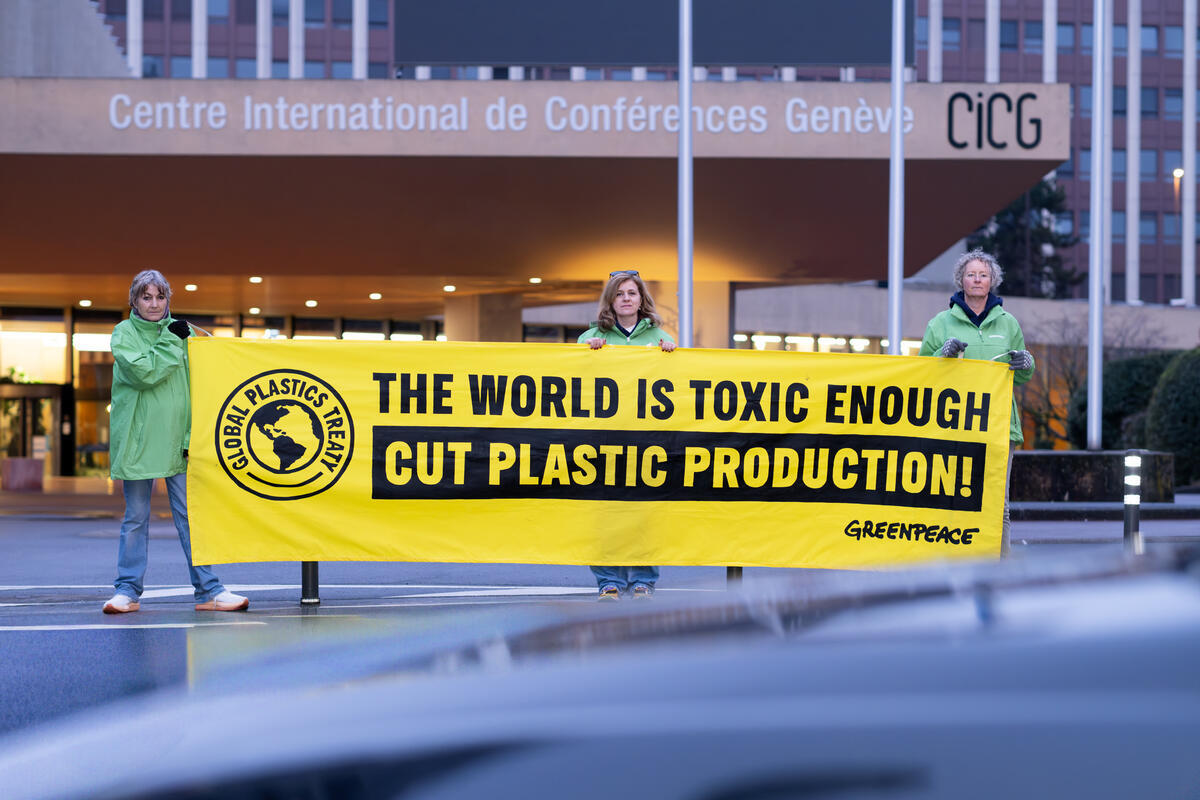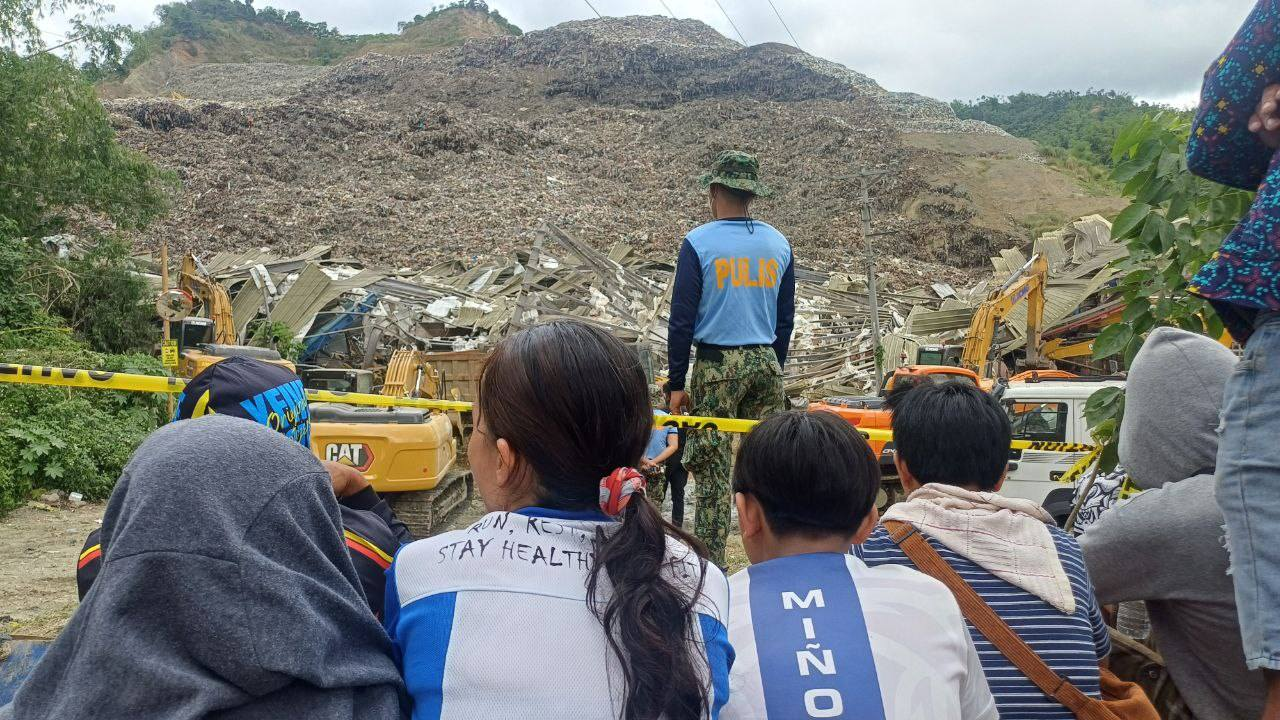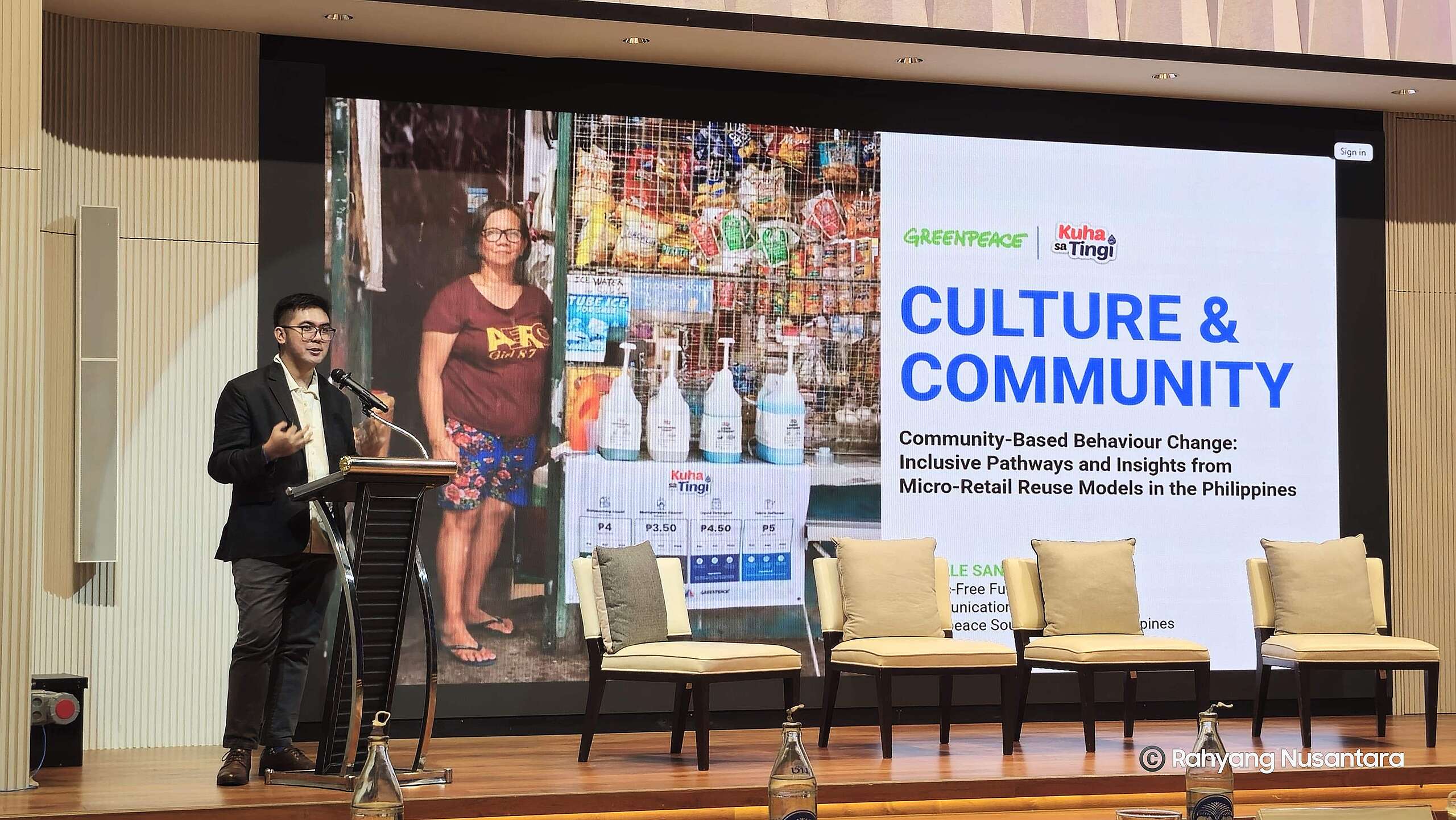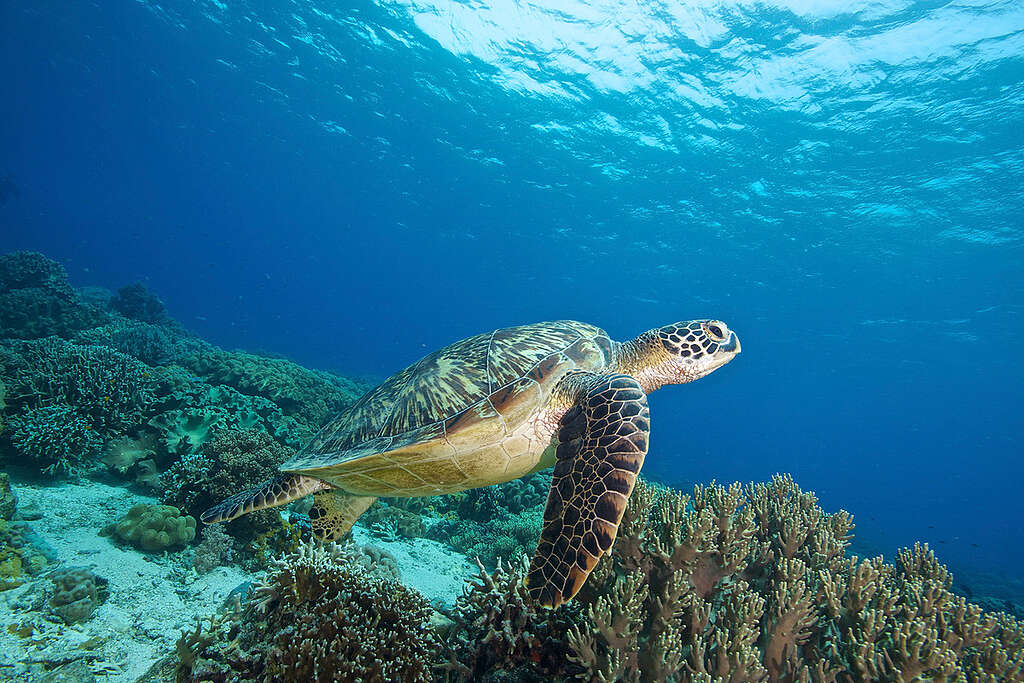
Body care and hygiene products are usually sold in single-use plastic sachets in the Philippines, but micro, small, and medium enterprises (MSMEs) like Magwayen Organics have chosen to swim against the current.
MAGWAI’s ocean-loving founders, Czar Carbonel and Maffy Tamayo, started the company in 2016 after learning that many of the commercially available sunscreens in the Philippines are toxic to coral reefs. While they lacked the knowledge to formulate such a product at the time, that didn’t stop them from later on providing an environmentally-friendly alternative to Filipinos.
Their mission, however, didn’t stop at formulating reef-safe sunscreens: it further expanded to offerings such as plastic-free shampoo bars and refillable pump bottles. The latter promotes reuse and refill solutions for storing personal care products, like their plastic-free conditioner blend.
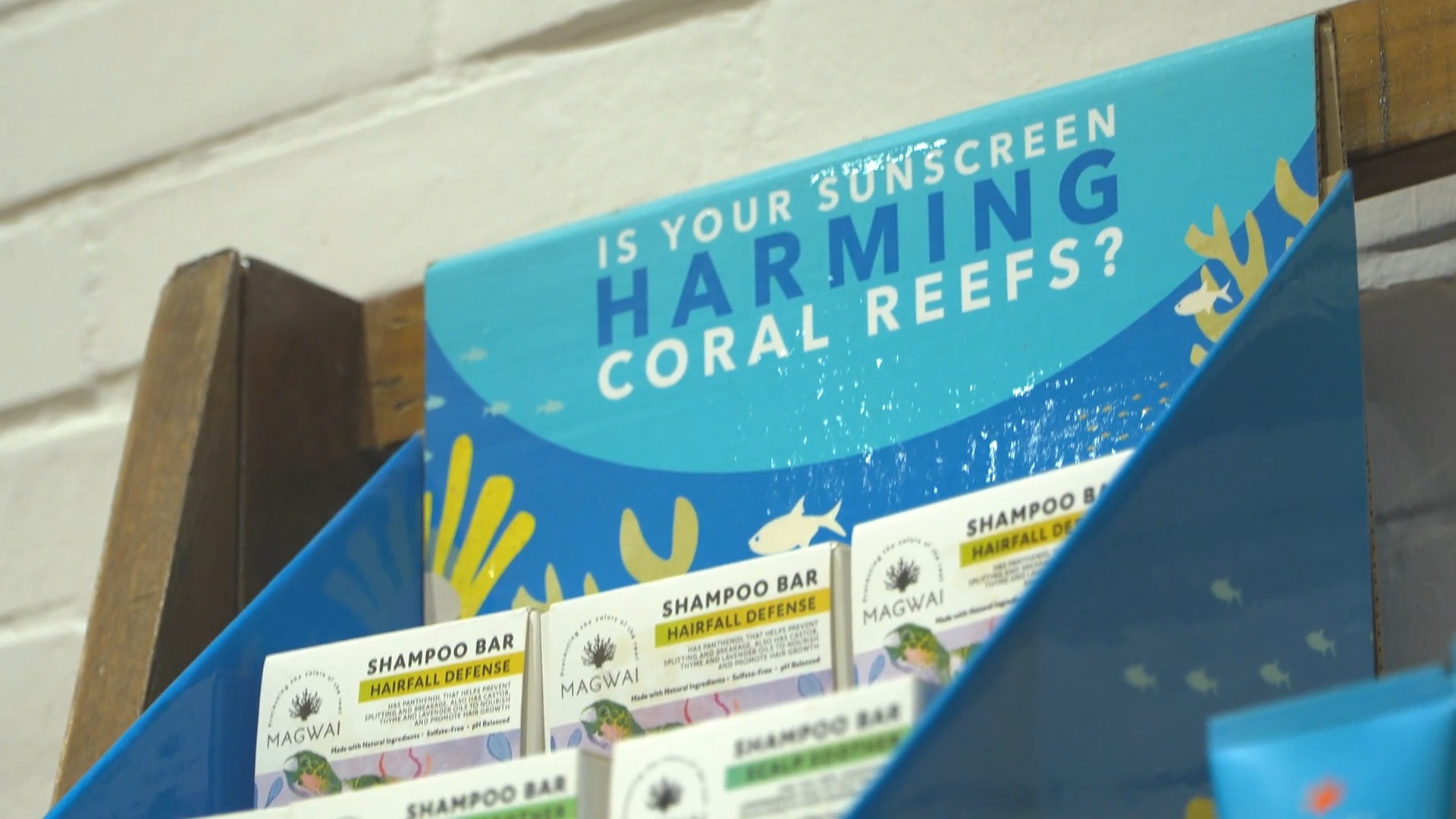
“With plastic pollution, there’s the obvious issue that it can harm certain marine animals, especially turtles,” said Denise Sze, Marketing Executive for Magwai, in an interview.
“There have been a lot of studies showing that plastics, especially when they break down into microplastics, can actually threaten coral populations. I think that’s why it’s really important for us to fight plastic pollution because they affect the entire marine ecosystem.”
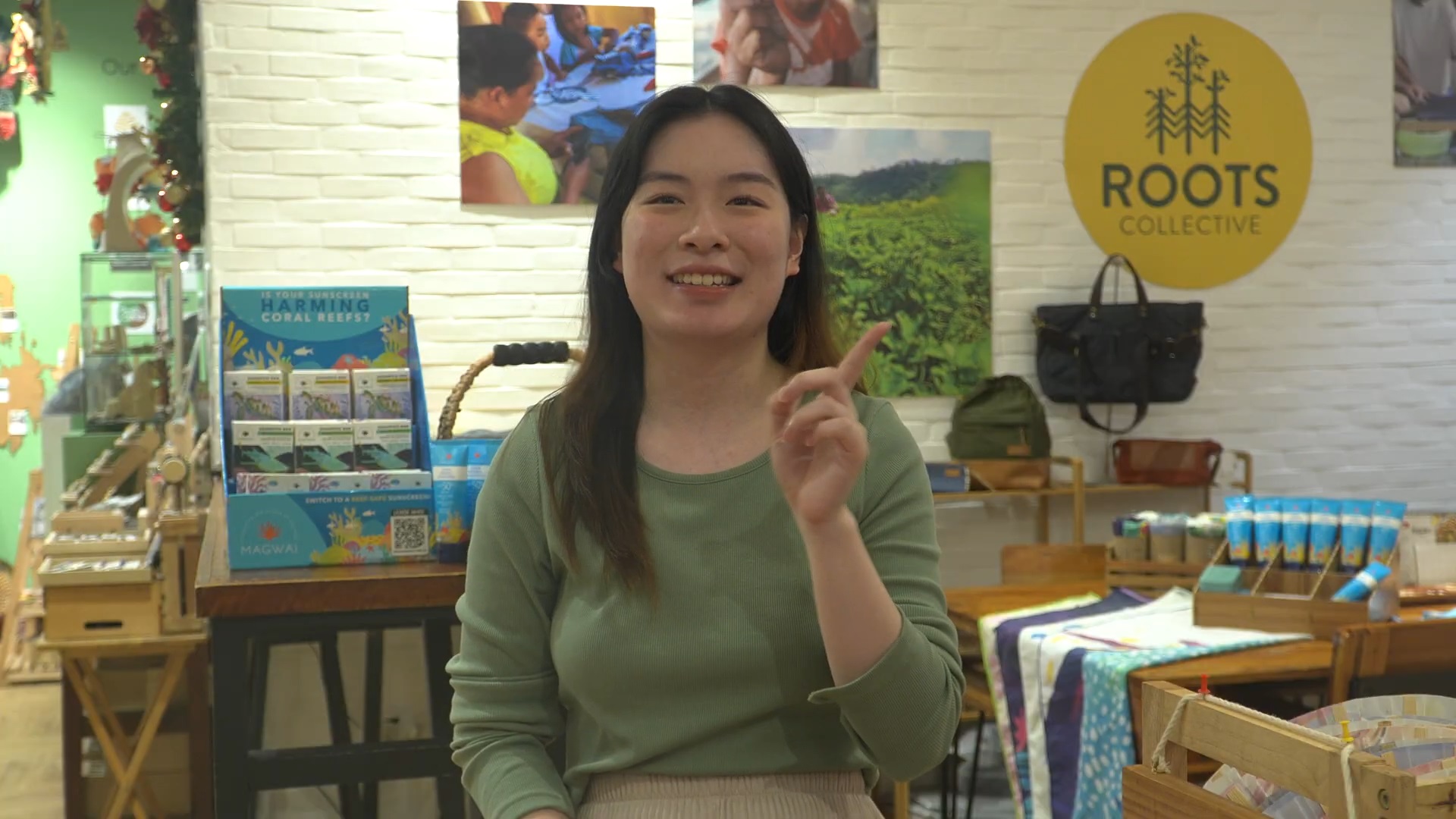
A staggering 164 million pieces of sachet are used and disposed of on a daily basis in the Philippines, 19% of which are composed of body care or hygiene products. While these products help us stay clean, they do nothing to clean up the environment. Quite the opposite, actually. One study has estimated that there are over 170 trillion plastic particles in our oceans.
Plastics do not only endanger the lives of marine animals when ingested, they can also smother our coral reefs and disrupt their development. A recent study also revealed that the average size of wildlife populations has drastically fallen by 73%, with pollution, including plastic pollution, as one of its main culprits. It is estimated that marine plastics are contributing to the death of more than 100,000 marine mammals every year.
For humans, the effects of plastic pollution on marine life are just as grave. Fishing communities report a decline in fish yield as plastic pollution in our oceans worsens. As a result, it increases fuel costs as it necessitates moving deeper into the oceans to catch fish. Microplastics can also enter our food systems when food sources like fishes ingest these plastic particles.
This is besides the fact that 99% of plastics are made with chemicals sourced from fossil fuels, materials that emit greenhouse gases when burned. These trap heat in the atmosphere, causing global temperatures to rise. Climate change results in ocean acidification, sea warming, and deoxygenation, which altogether have devastating impacts on marine biodiversity.
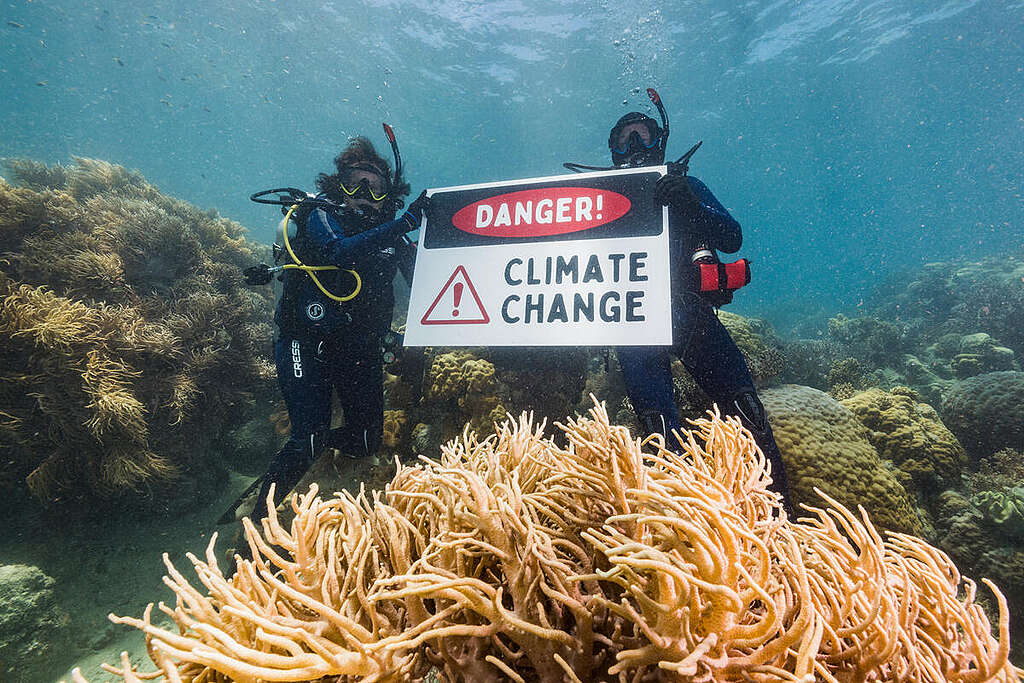
‘Expensive’ eco-products?
Like many environmentally-conscious businesses, MAGWAI admits to facing certain hurdles. One of which is the notion that sustainable brands are “too expensive” or “not accessible” to Filipinos living in a third world country.
“I won’t deny that there is a little bit of grain of truth to this,” replied Denise. “But I also believe that the market is ever changing. There are so many businesses that are striving to make their eco-friendly products more accessible.”
Denise used MAGWAI’s shampoo bars as an example, saying that it could last up to 80 washes. According to her, this could be “far cheaper” in the long run compared to buying multiple similar products sold in single-use sachets.
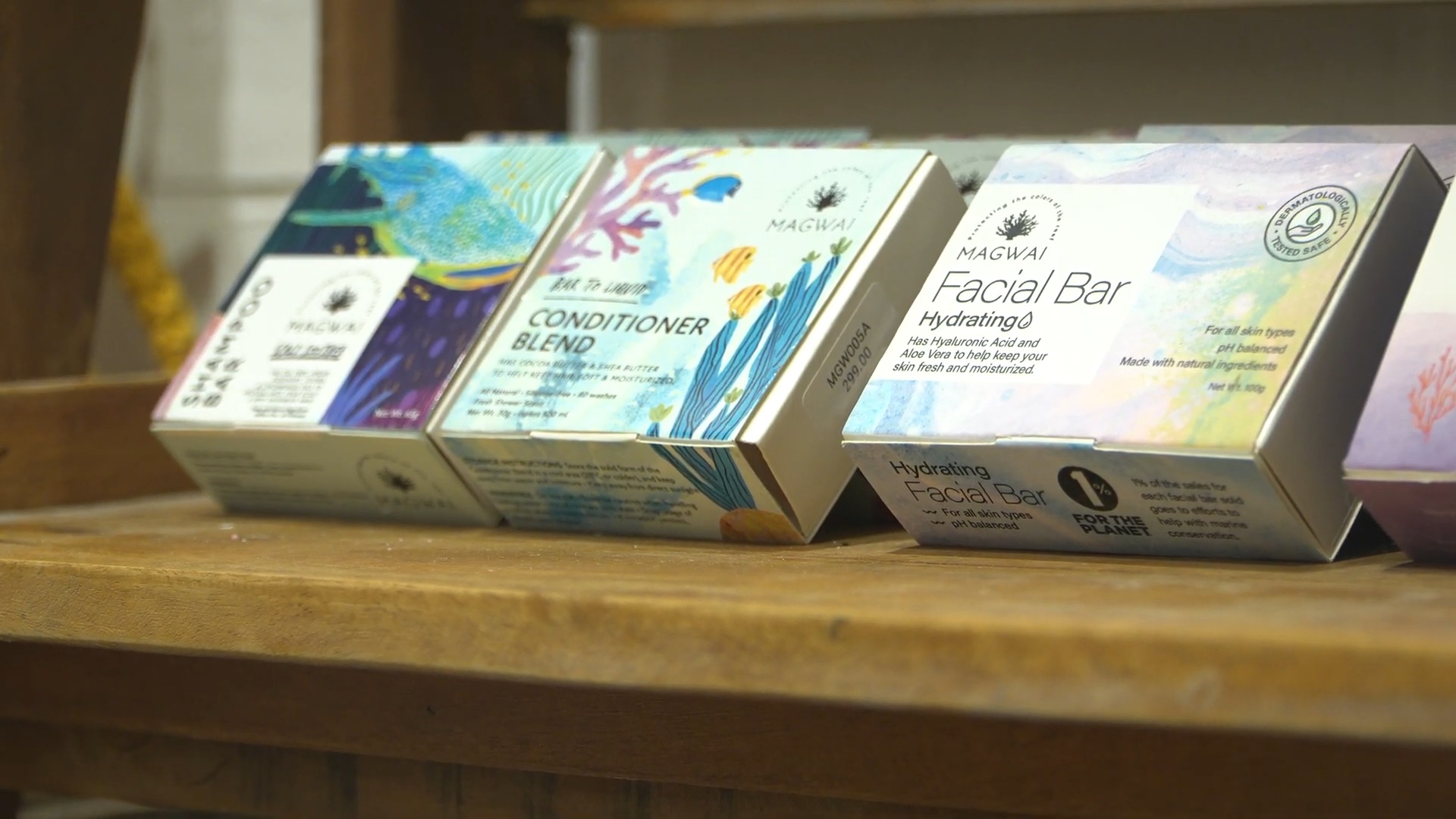
Moving beyond said products, Denise added that using a single eco bag while shopping or switching from fast fashion to thrifting (and using those clothes for a very long time) could actually save people money.
Asked about her advice to entrepreneurs that want to go sustainable, Denise suggests that businesses prioritize making effective eco-friendly products and services that appeal to consumers to ensure it contributes to behavioral change and shifts towards sustainability.
“So this is a bit of very business-heavy advice. There are so many brands and businesses right now that say that they are eco-friendly. But again, the problem is sure, it’s eco-friendly. [But] what if the consumer uses it and then they don’t like it?” she said.“Then it sort of defeats the purpose of making your product widespread and touching more people’s lives and making them make that significant switch.”
Being a ‘Champion of Change’
MAGWAI is but one of many MSMEs who joined Champions of Change, a growing network of progressive businesses calling on the world’s governments to negotiate an ambitious Global Plastic Treaty that will cut plastic production for good.
Initiated by Greenpeace International, Break Free from Plastic movement, and Plastic Pollution Coalition, the “champions” acknowledge their potential in reshaping prevailing business models as MSMEs comprise over 99.59% of all business establishments in the Philippines.
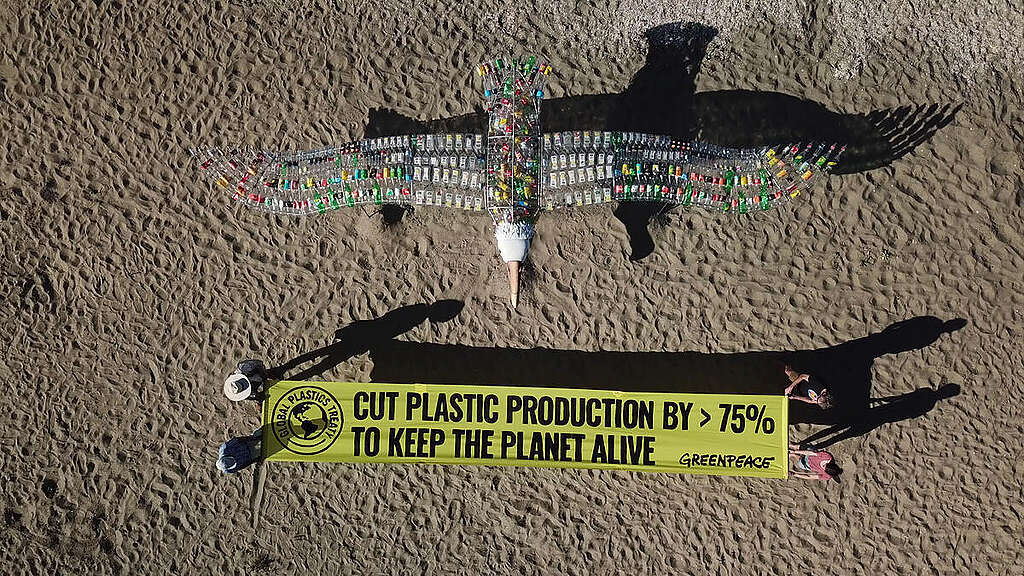
“I think policies like [local plastic bans and strong treaties] are very essential to changing [behaviors] in the market. Because, first of all, they support businesses like us who provide eco-friendly products and sustainable alternatives,” continued Denise. “They also encourage other businesses to innovate more to develop their own sustainable alternatives.”
She likewise cited how bringing reusable bags in grocery stores are now “as natural as breathing” in Parañaque City following a single-use plastic ban in the said local government unit. “I think that’s such a welcome change that wouldn’t have been as easy to normalize or to implement without policies like these,” Denise added.
With the support given by the MSME community to the Champions of Change initiative, Greenpeace Philippines believes that major corporations have no excuse not to follow suit.
“We hope to see all different types of institutions coming together, not only [non-government organizations] or those in the private sector like impact-driven businesses such as Magwai, but also larger corporations, the government, and even the consumers all uniting together to fight against plastic pollution and overconsumption,” Denise said.
MAGWAI hopes that more businesses band together in a shared commitment to make the planet a better place, this while calling on the government to help fellow impact-driven businesses reach more people.
###
